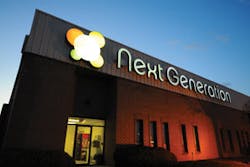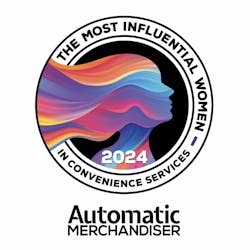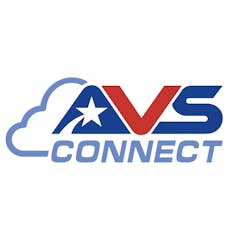Vending industry observers have long predicted the vending operator base will consolidate as operating costs rise and economies of scale become more critical to profitability. The vending industry, some believe, is destined to follow the fate of others, such as the office products industry, where a handful of large companies control the majority of the business.
Given that the factors that support consolidation — such as limited growth opportunity and rising operating costs — have brought new pressures to bear on operator profitability, might a new era of consolidation be under way?
Still another factor is that new technology — such as telemetry-based remote machine monitoring, cashless transactions, coupon-based promotions and video screens — are creating new opportunities that will make vending a better value to consumers, but will require the resources of a high volume operation.
Dave Mac Isaac believes that day is arriving. He and a group of partners have established a company over the past two years, Next Generation Vending and Food Service, Inc., based in Canton, Mass. Next Generation has acquired several refreshment service businesses in the past year and a half and now claims to represent $120 million in annual sales, with plans to expand.
A VENDING/OCS VETERAN RETURNS TO THE INDUSTRY
Refreshment services industry veterans will remember Mac Isaac from a previous vending and OCS entity that set out to establish nationwide operations through acquisitions: USRefresh.
USRefresh was established in 1999 following a reorganization of U.S. Office Products Inc., a publicly traded company that included a host of businesses: office products, vending, OCS, travel services and print services. Established in 1994, U.S.O.P. acquired numerous businesses through the 1990s, including vending and OCS operations.
In 2001, debt-burdened U.S.O.P. declared bankruptcy and sold USRefresh’s OCS business to Montreal, Canada-based Van Houtte Inc. (which owns Westwood, Mass.-based Filterfresh Coffee Service Inc.) and its vending business to Brockton, Mass.-based, now-defunct All Seasons Services Inc.
After leaving USRefresh, Mac Isaac joined a company as CEO in the laser printer cartridge business, Clarity Imaging Technologies Inc. in Waltham, Mass. While building that company, he met John Ioannou, who had worked for IBM and had led various technology companies. Mac Isaac and Ioannou shared a passion for technology, and they agreed that technology was destined to change the vending industry.
A NEW TEAM EMERGES TO FORM A COMPANY
The two men put together a management team and in October of 2007 acquired certain assets of All Seasons Services Inc. with the intention of developing a new refreshment services company. Mac Isaac is chairman and CEO while Ioannou is president. Joe Rogan, who was chief financial officer (CFO) of USRefresh and worked with Mac Isaac in the printer cartridge business, is the CFO and chief operating officer at Next Generation.
Mac Isaac said he noticed over the years that vending operators were not using the technology that was available to improve the customer’s experience and allow for more efficiency. As time progressed, he came to believe that the need to use technology had become more important.
GROWTH THROUGH ACQUISITION
In early 2008, Next Generation acquired selected routes in Rochester, N.Y. from a manual foodservice
operator and the assets of Integrity Management
Services, a Binghamton, N.Y.-based vending and foodservice operation.
Later in the year, Next Generation became a Canteen franchisee and acquired the assets of Canteen’s operations based in Albany, N.Y., and Middletown, Conn.; Loose Ends Vending, Inc., a Canteen franchisee based in Batavia, N.Y.; and the Massachusetts and Rhode Island assets of A & B Vending Co., Inc., a Canteen franchisee based in Wakefield, Mass.
Next Generation has four regions, each managed by a vice president and staffed with sales directors, general managers and account managers overseeing route personnel.
The company’s goal is to implement sophisticated management technologies, merchandising programs and healthy options that not only improve the customer experience, but also reduce the industry’s environmental impact.
Mac Isaac noted that USRefresh made significant progress in meeting some of these goals before it was sold. He is quick to point out that USRefresh was a profitable business; the company’s annual sales peaked at $130 million. It was sold because the parent company, U.S.O.P., had assumed too much debt.
Mac Isaac said USRefresh was making progress adapting technology prior to being sold. He said seven routes were using remote machine monitoring; data was gathered in radio transmitters inside the machines and was downloaded daily. The system reported machine malfunctions, cash audits and sales and service information.
TECHNOLOGY HOLDS A KEY TO THE FUTURE
Technology is a key pillar at Next Generation. The company plans to have all of its 230 routes reporting data wirelessly. At the present time, two routes are doing so.
Mac Isaac said most of its 24,000 machines will report data wirelessly. All cold drink, candy/snack and food machines will report data wirelessly. Management has not yet decided if hot beverage machines will do so.
He said the company is currently consumed with the tasks of integrating its acquired businesses. Management is also reviewing software packages and has not yet decided which route management system to use.
Next Generation is presently using three route management software systems. Management expects to
decide what software system to use company-wide by early summer.
The partners recognize that investing in technology and other initiatives is challenging in a recession. At the same time, investing for growth in a slow economy makes sense for a company that has the capital. “It is in difficult times that you want to make investments,” Ioannou said. “We see that as an opportunity.”
Ioannou and Mac Isaac strongly believe that the vending industry is undergoing a shakeout. They believe larger operations will be the most profitable. The larger operations have the resources to better understand customer needs and the systems that can deliver the services efficiently. The end result, in their view, will be a more satisfied customer.
“We take this entire customer focus to a very multi-faceted set of initiatives,” Ioannou said.
FOCUS: FRESHNESS AND VARIETY
Ioannou and Mac Isaac believe they will offer a greater variety of products than most competitors. They have invested in a culinary center in Canastota, N.Y. that serves the two New York regions. They source fresh food from commercial providers in the other two regions.
The company presently operates about 70 corporate dining locations, which account for about 15 percent of its revenues.
A dedicated office refreshment division, providing OCS and water, is being developed. The OCS products are presently delivered on vending routes.
POINT OF DIFFERENCE: HEALTHY OPTIONS
Healthy options are another point of distinction the company has identified. The Vitalities™ program was designed by a registered dietician. It encompasses the snack, cold beverage and fresh food categories.
To promote Vitalities™, Next Generation has developed professionally designed point-of-sale materials. The Vitalities™ program focuses on branded snack items that have lower fat, lower sugar, lower carbohydrate content and higher energy, and branded beverage items that are lower in fat, lower in calories, lower in caffeine and higher in nutrients.
Vitalities™ has helped win some big accounts.
Vitalities™ has also helped grow and increase customer satisfaction at existing accounts such as Ithaca College in Ithaca, N.Y. A nutrition class evaluated the nutrition contents of the snacks in the vending machines on campus and created a survey to see what the users’ spending habits were at the vending machines. This class then made recommendations to Next Generation for some healthier snack options at the same time Next Generation was rolling out the Vitalities™ program on campus.
Next Generation currently operates several Quickstore24™ machines, an exclusive retail concept featuring coupon dispensers, video screens and its own proprietary management software. The machine features digital thumbprint payment, interactive video touchscreens that include advertising, and promotional coupons printed at the point of sale — all in addition to cashless readers and remote machine management.
The partners did not want to say exactly how many of these units are being operated, nor have they decided how extensively they will work with Quickstore24™.
A FOCUS ON TECHNOLOGY
Whatever concepts Next Generation adopts, management is committed to differentiating the company as a leader in technology.
The company markets its mix of technologies used to deliver vending services under the proprietary name, VendWise™.
The two routes that are reporting machine data wirelessly are located in the New England region and are already enjoying the efficiencies that remote monitoring provides. These efficiencies will increase as the wireless network expands to include more routes.
The machines report sales automatically to the branch locations. The data allows all route inventory to be pre-kitted in the warehouse and loaded onto trucks before the drivers arrive in the morning.
All vending trucks carry snacks, cold food, frozen food and beverages. Most of the trucks use coolers for the refrigerated products, although some also have freezers.
DRIVERS USE DEX HANDHELDS
DEX handhelds also play a role in managing the business. All drivers currently use DEX handhelds, and will continue doing so even after remote monitoring becomes introduced to all of the routes, Ioannou said.
Supervisors review machine activity from a remote location, but the handhelds are needed in order for drivers to make adjustments at the machine level.
Ioannou believes that one of the greatest benefits of remote monitoring is a better understanding of customer needs.
POINT OF SALE MARKETING
In addition, Next Generation will deliver cross-merchandising promotions, such as coupons for other desired items or activities. The company is examining various coupon options, in addition to the Quickstore24™ already mentioned.
“Remote monitoring gives you a relatively easy jumping off point for other things, like improved merchandising,” said Ioannou.
CASHLESS READERS TO INCREASE
The company has introduced cashless readers to some of its machines and plans to do more in the near future. “It is expensive (currently) for the return,” Ioannou said. “It needs to be a location driven scenario.” The partners believe that cashless will become more widespread.
The technology initiative includes equipping all route drivers and service technicians with mobile phones with global positioning satellite (GPS) transmitters. The GPS allows the company to supervise route activity effectively.
Ioannou is quick to point out that the cost of technology decreases over time.
The company also supports energy efficiency initiatives, which it calls GreenVend™. Next Generation plans to use LED light bulbs, which it claims reduce energy consumption by 40 percent, on many snack machines in response to customer demand.
Another goal is to have machines Energy Star certified when customers request it. The initiative also includes USA Technologies Inc.’s VendingMiser® devices, which power down machines after a period of inactivity.
“We are looking at all energy efficient alternatives,” Ioannou said.
POSITIONED FOR INCREASED ROUTE PROFITABILITY
In the immediate term, the company hopes to increase its route density. They are looking to grow organically and acquire more businesses to help meet this objective.
The partners are aware that some industry veterans question the view that larger companies are destined to lead the industry. Skeptics argue that because of the high level of service required in vending, smaller companies are better able to devote top level management to individual customers.
Large operators respond that modern technology gives big companies the means to manage more customers effectively. “Scale and customer focus aren’t mutually exclusive,” said Ioannou.
Ioannou and Mac Isaac believe that if their expectations come to fruition and the industry is led by larger companies, the customer perception of vending will improve. The larger companies such as Next Generation will create higher expectations and the vending bank will become a destination for consumers.
“Sooner or later, it’s going to occur,” Mac Isaac said.





